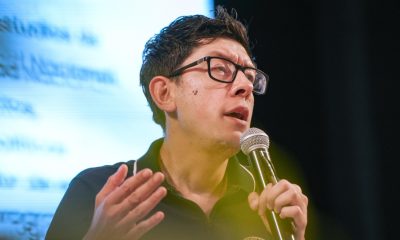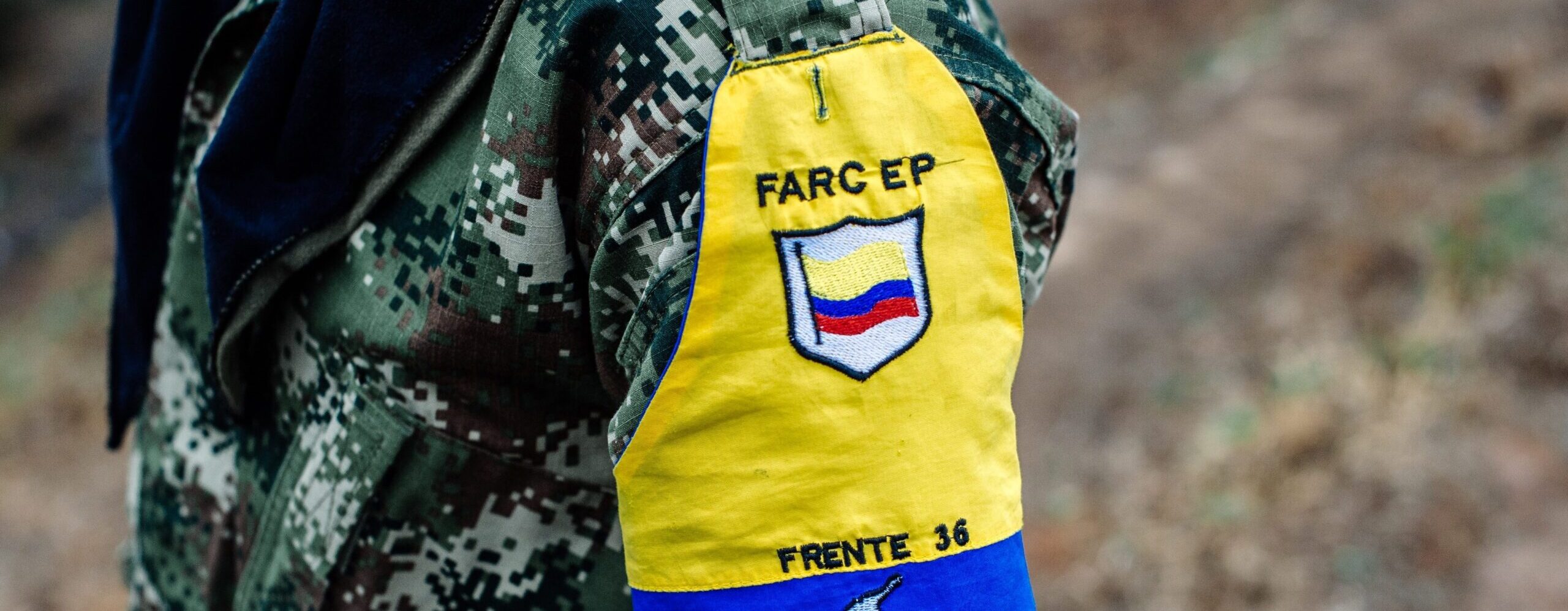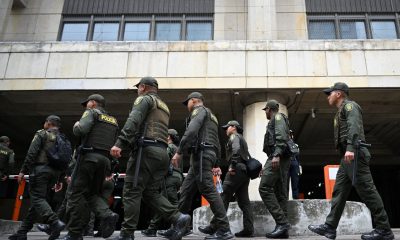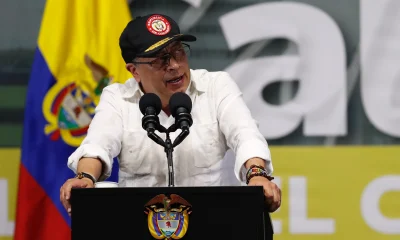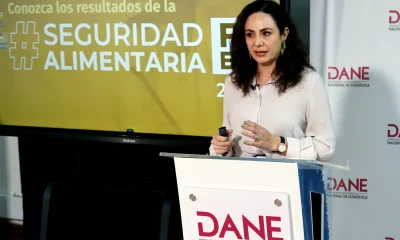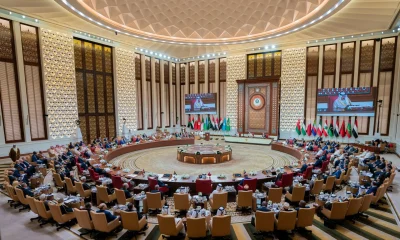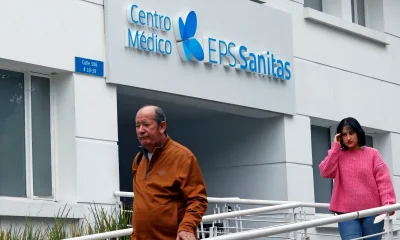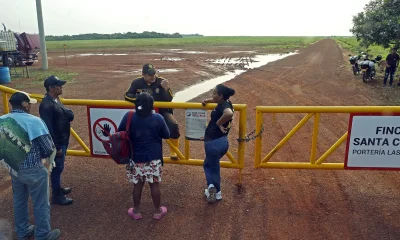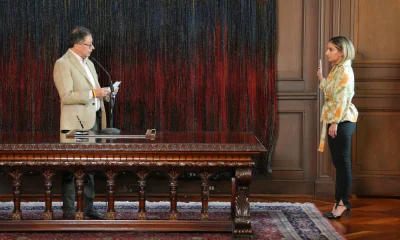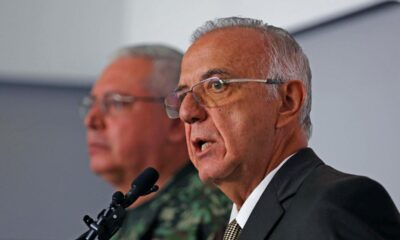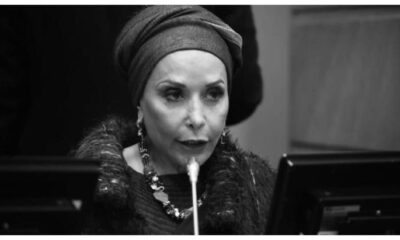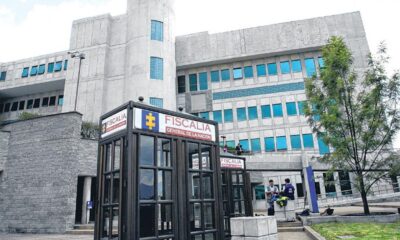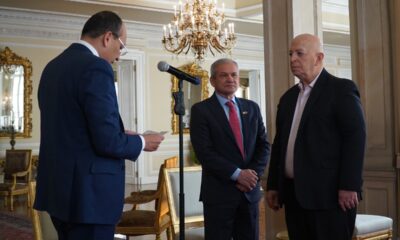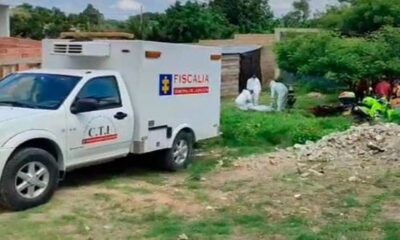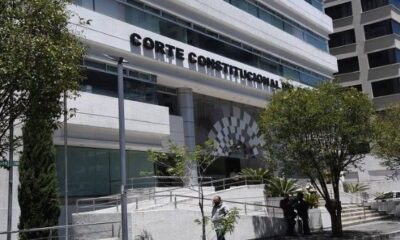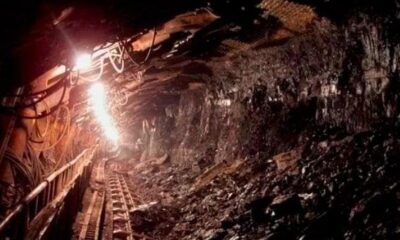International
Javier Acosta dies after euthanasia in Colombia, sparking renewed euthanasia debate

On Friday noon, Javier Acosta, 36, passed away after receiving euthanasia at a university hospital in San Ignacio, Bogotá, Colombia. He had been diagnosed with osteomyelitis and blood cancer.
His case shocked the entire nation and those who followed his story on social media after he decided to end his life. The decision came as medications ceased to be effective and doctors ruled out the possibility of walking again or improving his condition.
“I’ve been hospitalized for a month; I discovered a severe bacteria that I’ve been treating for about six years, called osteomyelitis. This bacteria has left me in a bad state,” Javier explained on August 21, during a live broadcast on his Facebook profile, Javier Acosta PK. In the video, he did not explicitly mention his decision to undergo euthanasia but hinted at it. “After crying so much and talking with God, I have no tears left. It’s hard, it’s sad,” he said while describing his suffering.
“I’ve been fighting to save myself, my body, my skin, my bones. Unfortunately, the bacteria came back… The bacteria is like the iPhone, 13, 14, 15, pro, pro max. This bacteria is in re pro max. I’m on three antibiotics,” he said, showing the intravenous antibiotics in his video and expressing that despite the three strong medications, he still had fevers and poor culture results. “I don’t have much hope of continuing to live; it sounds harsh, and I’m recounting it very coldly, but it’s the truth. Life turns out this way.”
Colombian media reported that Javier Acosta died at 12:47 PM on August 30, after being induced into a coma and then undergoing euthanasia. Javier was a fan of the Millonarios football team, and his wheelchair condition was a result of an accident related to his support for the team. A group of supporters gathered in front of San Ignacio Hospital at noon on Friday to show their support for Javier and his family.
Javier Acosta’s case has reignited the euthanasia debate. Although euthanasia is legal in Colombia, many tried to persuade him to reconsider his decision through social media.
On August 28, Javier received a call from Radamel Falcao García, who learned about his case and offered words of encouragement. “Thank you, Tiger, for praying for me, for calling me, and for saying so many beautiful things about my life… you know the promise, first goal dedicated to Javi PK…” Javier wrote in a Facebook post where he shared part of the call.
According to Infobae, in Colombia, euthanasia is permitted in specific cases of terminal illness where the patient suffers from unbearable physical or psychological pain that cannot be alleviated by other means. Javier had said that even morphine did not relieve his pain.
International
Spain’s irregular migrant population rises to 840,000, study finds
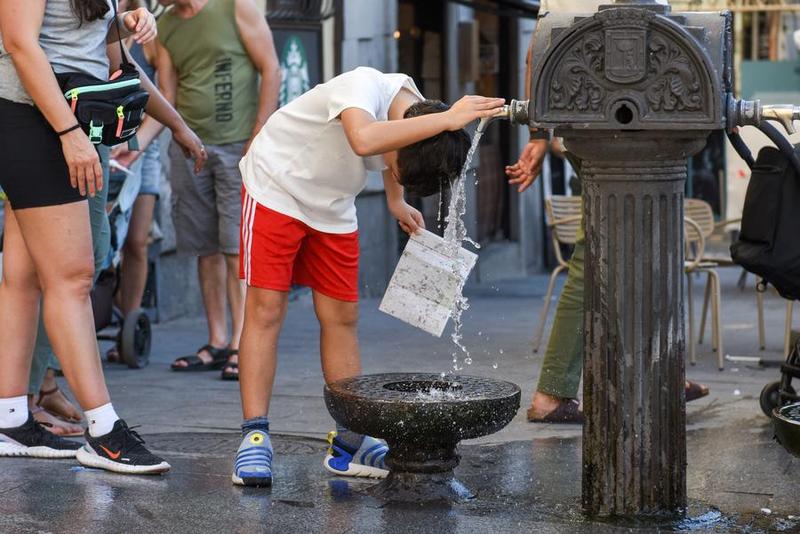
The number of migrants living in Spain without legal residency status continues to rise and has reached 840,000 people, with 91% originating from the Americas, particularly Colombia, Peru and Honduras, according to a report by the Spanish think tank Funcas (Foundation of the Savings Banks).
An estimated 17.2% of the non-EU foreign population living in Spain is in an irregular administrative situation. The estimate is based on the gap between the number of foreign residents effectively living in Spain, according to the National Statistics Institute (INE), and those who hold a residence permit, benefit from international protection, or are in the process of obtaining it.
The data, as of January 1, 2025, point to a notable and sustained increase in irregular migration since 2017, when the estimated figure stood at around 107,000 people, representing 4.2% of the non-EU population residing in Spain.
By origin, migrants from the American continent stand out, totaling around 760,000 people, or 91% of all irregular migrants. Colombians account for nearly 290,000, followed by Peruvians with almost 110,000, and Hondurans with about 90,000. Migrants from Africa (50,000), Asia (15,000) and Europe (14,000) trail far behind.
The figures predate Spain’s latest immigration regulation reform, which came into force in May 2025 and introduces measures to ease access to legal status through residency ties. According to Funcas, the reform would, in principle, tend to reduce the number of migrants in an irregular situation.
International
Historic snowstorm paralyzes Toronto after 60 centimeters of snow

Toronto, Canada’s largest city and the fourth most populous in North America, was largely paralyzed on Monday after a historic snowstorm dumped up to 60 centimeters of snow and sent temperatures plunging to -15 degrees Celsius, authorities said.
Late Sunday, as the scale of the snowfall became clear, city officials declared a climate emergency, triggering extraordinary measures including parking bans on several major streets to facilitate snow removal operations.
Toronto’s public transit authority reported that while some buses remain immobilized, subway and streetcar services are operating with relative normality, though localized disruptions may occur.
A similar situation is affecting the city’s commuter rail network, which remains operational but is experiencing significant delays on its main routes due to the severe weather conditions.
International
Venezuela frees at least 80 political prisoners, NGO says
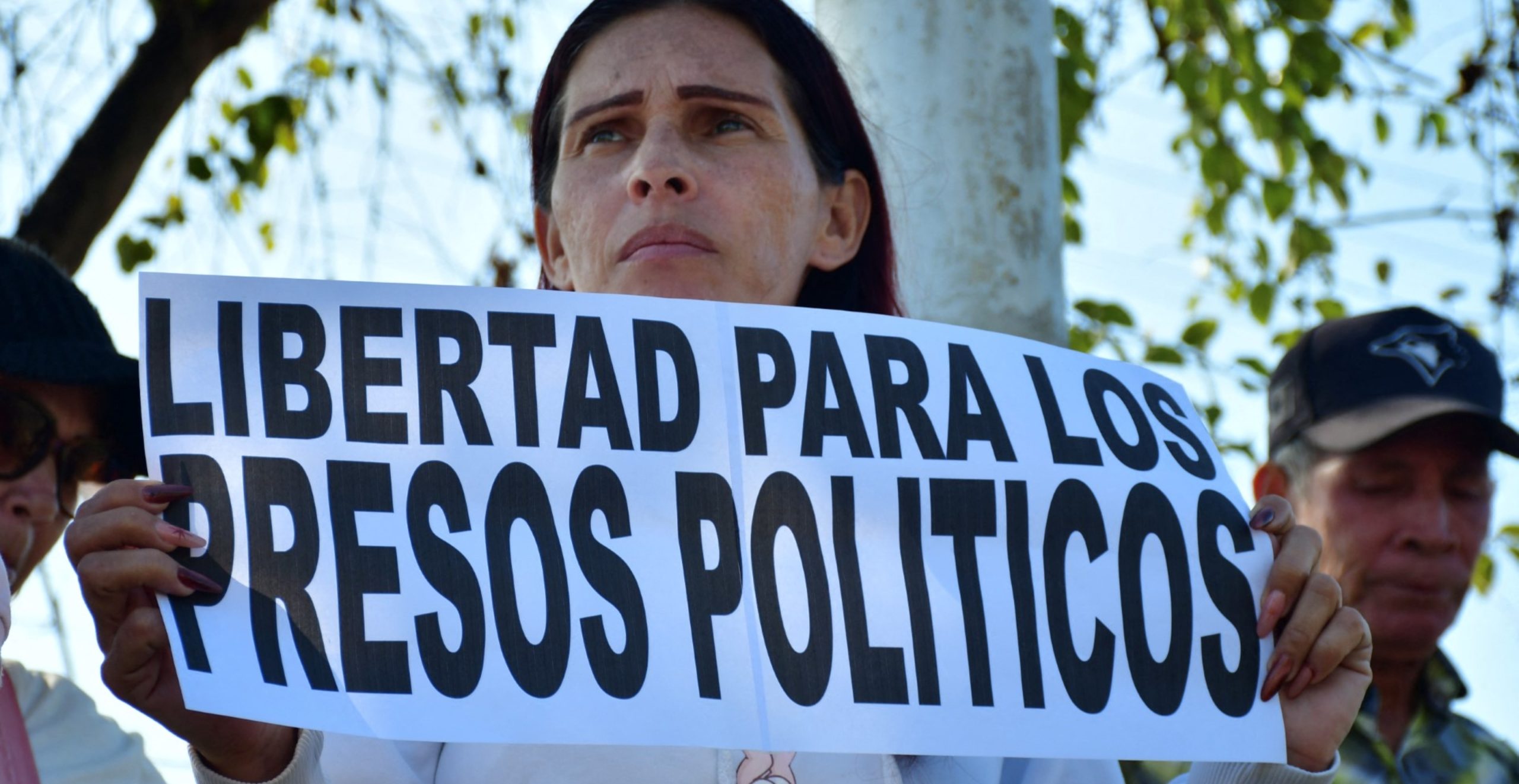
At least 80 political prisoners were released on Sunday across Venezuela, human rights group Foro Penal reported, as the broader process of detainee releases continues at a slow pace under the interim government.
Foro Penal’s director, Alfredo Romero, wrote on social media platform X that verified releases took place nationwide and that the figure could rise as more confirmations are completed.
Attorney Gonzalo Himiob, also from Foro Penal, said the excarcelations occurred during the early hours of the day and emphasized that the number is not yet final pending further verification.
The releases are part of a series of steps announced by Venezuela’s interim leader, Delcy Rodríguez, who took power after the capture of former President Nicolás Maduro in a U.S. military operation on Jan. 3, 2026. Rodríguez has pledged a significant number of liberations but has been criticized by opposition groups and rights organizations for the slow and nontransparent nature of the process.
So far, the Venezuelan government reports that 626 detainees have been freed since December, though independent counts by human rights groups suggest the number of actual political prisoner releases is lower and that many remain behind bars.
Families of those still detained have maintained vigils outside prisons, hopeful for further releases even as broader concerns about political imprisonment and due process persist.
-

 Central America5 days ago
Central America5 days agoMazatenango Carnival cancelled amid State of Siege in Guatemala
-

 International5 days ago
International5 days agoTrump to invite Venezuela’s interim president Delcy Rodríguez to Washington
-

 International5 days ago
International5 days agoMarkets rise as Trump halts Europe tariffs and floats Greenland agreement framework
-

 International5 days ago
International5 days agoVenezuela’s interim president predicts 37% increase in revenues for 2026
-

 International3 days ago
International3 days agoTrump-Era Defense Plan Prioritizes Border Security and Scales Back Global Commitments
-

 Central America3 days ago
Central America3 days agoGuatemala’s president rules out negotiations with inmates after prison riots
-

 International5 days ago
International5 days agoJapan reopens Kashiwazaki-Kariwa Plant despite public concerns
-

 Internacionales3 days ago
Internacionales3 days agoMajor winter storm threatens “catastrophic” ice and snow across much of the U.S.
-

 International5 days ago
International5 days agoFour minors killed in deadly clash between FARC dissidents in Colombia’s Amazon
-

 International3 days ago
International3 days agoBogotá and Quito Seek Dialogue After Tariffs and Power Cut Escalate Tensions
-

 International3 days ago
International3 days agoGuatemala considers sending high-risk gang members to military prisons
-

 International2 days ago
International2 days agoDelcy Rodríguez seeks political agreements after Maduro’s ouster
-

 International3 days ago
International3 days agoRights group says over 5,000 killed in Iran protests, mostly civilians
-

 International2 days ago
International2 days agoFederal immigration agents kill man in Minneapolis, sparking protests and outrage
-

 International12 hours ago
International12 hours agoHistoric snowstorm paralyzes Toronto after 60 centimeters of snow
-

 International12 hours ago
International12 hours agoSpain’s irregular migrant population rises to 840,000, study finds
-

 Central America12 hours ago
Central America12 hours agoGuatemala seizes over a ton of cocaine hidden in flour at Pacific port
-

 International12 hours ago
International12 hours agoRights group says nearly 6,000 killed in Iran protest crackdown
-

 International12 hours ago
International12 hours agoVenezuela frees at least 80 political prisoners, NGO says
-

 International12 hours ago
International12 hours agoEU launches new probe into X over AI-generated fake nude images
-

 International12 hours ago
International12 hours agoFrance debates ban on social media for children under 15
-

 International12 hours ago
International12 hours agoSevere winter storm grips U.S., leaves multiple dead as extreme cold persists





























